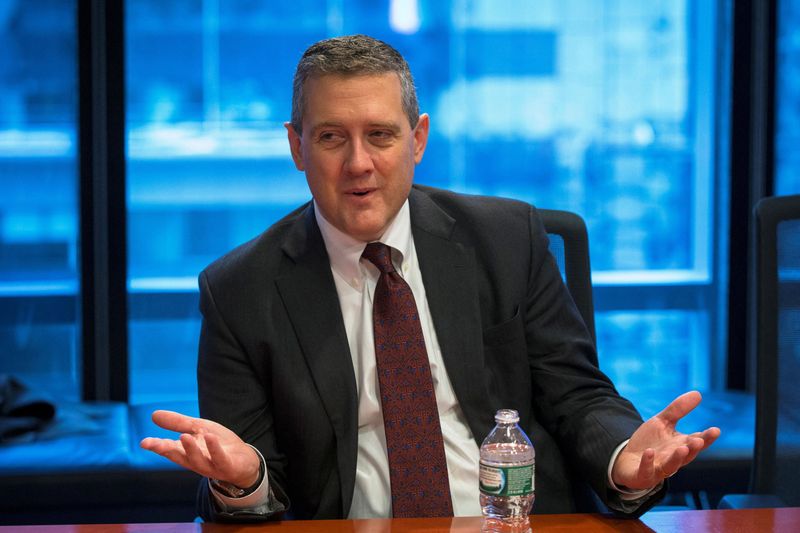WASHINGTON (Reuters) - Rapid U.S. interest rate increases have raised the risk of a recession, but it is likely to be caused by an outside shock rather than from a collapse of a U.S. economy that remains resilient, St. Louis Fed president James Bullard said on Tuesday.
"Any time you are trying to...go between buildings on the high wire you're worried about a big gust of wind coming up," Bullard said at an economic forum in London, referring to the path the Fed is trying to walk between controlling U.S. inflation without triggering a serious downturn.
But with strong U.S. job growth and strong household balance sheets, "talk about the recession story should be more on a global basis than a U.S. basis," he said, with the possibility of Europe and China pulling the rest of the world into a downturn.
Bullard, who has been among the most hawkish of Fed policymakers in encouraging faster and larger rate increases, said he now thinks Fed plans to raise the target policy rate to around 4.5% by the end of this year has pushed U.S. monetary policy to a "restrictive" level that will slow the economy and ease inflation.

Those high rates will, Bullard said, have to be maintained for "some time," a fact that has triggered a fast repricing of financial assets in recent weeks and raised concerns that Fed policy is heightening risks for the global economy.
"We certainly do internalize the spillover effects" of Fed policy, Bullard said. But as with his colleagues he said that was focused on how events in other countries influence forecasts for the U.S. economy.